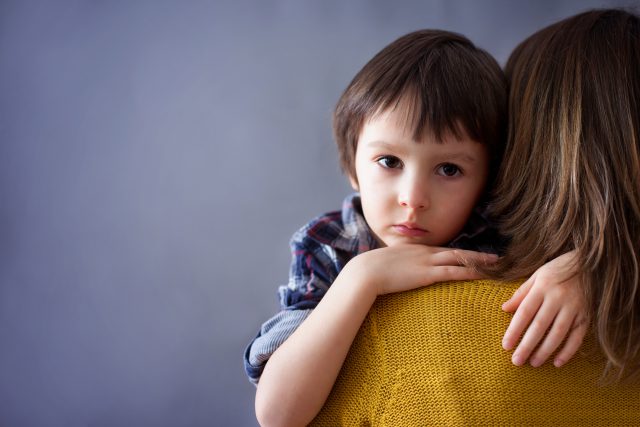
Parental conflict is toxic for children. Studies have demonstrated that when exposed to conflict our brains release stress hormones that over time can actually change brain functioning. This exposure to conflict can manifest as anti-social behaviour, problems at school, problems interacting with others, impaired problem solving and delinquency. No parent wants to interfere with their child’s ability to live a healthy, well-adjusted life, and that is why it is important to insulate your children from parental conflict just as you would insulate them from any other “bad” thing that can cause them harm.
For many people, ending a relationship leads to a profound sense of loss. It is normal to experience many emotions during separation, such as loss, anger, betrayal, bargaining and sadness. The process of separation usually takes places in stages and you and your former partner might not be at the same place at the same time emotionally. It is important to understand that children experience their parents’ separation differently than their parents do. As parents, your own response to the separation and your behaviour to the other parent will have a tremendous impact on how your child adjusts.
The most powerful thing separating parents can do is pledge not to expose the children to adult conflict. Children are aware of their parents’ feelings and needs and your behaviour may affect them. Children need the support of both parents when their parents’ relationship ends. Think about it – the most significant relationship they have ever been a part of is dissolving in front of their eyes. Children experiencing the separation of their parents are in a state of turmoil and need to be reassured that everything will be ok. It is important to remember that your children love both of you and unless there are very serious safety concerns, your child is entitled to have a relationship with both parents.
Even though you may never want to see your former partner again, your child has the right to an ongoing, positive relationship with both parents. In the words of Justice Harvey Brownstone, “It’s called acting, and it’s not that hard to do! Parents, even those who live together – act in front of their children all the time. It is even more important to do after separation, because children need to be reassured that their lives will be happy and stable even though their parents live apart.” In other words, it is important to play nice with the other parent for the sake of your children. Therefore, do your best to resolve conflict, find a way to communicate, and do not speak badly about the other parent in front of your children. It is not the separation that is most harmful to children, but rather the ongoing conflict between parents. Children see themselves as “like” both parents, so if you criticize the other parent you are also criticizing them.
One of the biggest hurdles people face after separation is learning how to move forward in a cooperative way with a person they harbour negative feelings towards. There are many resources available online and in the community to help you and/or your former spouse learn how to communicate and co-parent in a healthy way after separation. Pathstone Mental Health offers a workshop called “New Beginnings: “Let’s Do it Right” to teach parents how to talk to children about separation, how to cope with separation and cooperative parenting strategies. Pathstone also offers counselling to assist children or families to cope with the stresses of separation and divorce. Connect Family Solutions in Welland offers a range of services during divorce and separation to assist individuals and families, including therapy for individuals, therapy for children and adolescents, parent coaching and education for parents. I also recommend the book Tug of War: A Judge’s Verdict on Separation, Custody Battles, and the Bitter Realities of Family Court by Justice Harvey Brownstone as a starting point for understanding why it is important to shield your children from conflict.
People need to understand that it is important to deal with your negative emotions and remove them from issues affecting their children. Legal issues stemming from separation will be addressed and resolved in time, but if you have children the primary piece of advice I would offer is it to find a way to protect your children from conflict, and do not put them in the middle of the adult issues. To learn more about how to insulate your children from conflict during separation or divorce, please feel free to contact me.
Jean Beaton is an Associate within the Family Law department of Lancaster Brooks & Welch LLP and she may be contacted for a consultation to discuss your separation or divorce. She is also certified to offer Collaborative Practice should both parties wish to avoid court. Jean may be reached at 905-641-1551.
